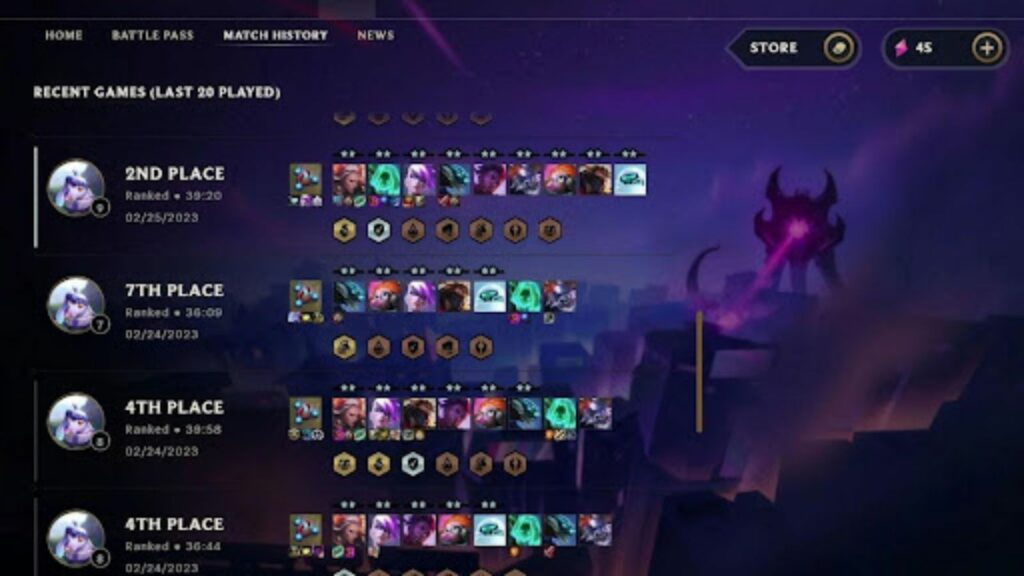League of Legends (LoL), the wildly popular multiplayer online battle arena (MOBA) game developed by Riot Games, has captured the hearts of millions of players worldwide. Whether you’re a casual player or an aspiring professional, improving your gameplay is likely a top priority. A critical component of this improvement is the ability to analyze your match performance effectively. This comprehensive guide will provide you with the tools and techniques necessary to dissect your gameplay, identify strengths and weaknesses, and ultimately enhance your performance in League of Legends.
Understanding the Basics
Before diving into the specifics of match analysis, it’s essential to understand the basic structure of a League of Legends game. Each match involves two teams of five players each, aiming to destroy the opposing team’s Nexus, the core building located in their base. Players choose from over 140 champions, each with unique abilities, roles, and playstyles. Matches are typically divided into three phases: the early game (laning phase), mid-game, and late game.
Gathering Data
In-Game Statistics
League of Legends provides a plethora of in-game League of Legends live stats that can be instrumental in analyzing your performance. Key statistics include:
– KDA (Kills/Deaths/Assists): This ratio helps gauge your involvement in fights and your ability to stay alive.
– CS (Creep Score): This measures the number of minions and monsters you have killed. High CS indicates efficient farming.
– Gold Earned: The total amount of gold you’ve acquired, which translates to better items and more power.
– Damage Dealt and Taken: These stats show how much damage you inflict and endure, indicating your effectiveness in fights.
– Vision Score: This includes ward placement and clearing, crucial for map control and team awareness.
Third-Party Tools
Several third-party tools can provide more detailed insights into your performance:
– OP.GG: This website offers in-depth statistics, match history, and champion performance data.
– Porofessor: A tool that provides live game stats, match history analysis, and performance scores.
– Mobalytics: This platform offers personalized performance analysis, identifying strengths and weaknesses in various areas.
Analyzing Your Gameplay
Reviewing Replays
One of the most effective ways to analyze your match performance is by reviewing replays. Riot Games provides a built-in replay system that allows you to download and watch your past games. When reviewing replays, focus on the following aspects:
Early Game (0-15 minutes)
– Laning Phase: Assess your last-hitting skills, positioning, and trading with the enemy laner.
– Jungle Pathing: If you’re a jungler, evaluate your route efficiency, gank timing, and objective control.
– Map Awareness: Check your ward placements and your ability to respond to enemy movements.
Mid-Game (15-30 minutes)
– Objective Control: Analyze your team’s handling of objectives like Dragons, Rift Herald, and turrets.

– Team Fights: Review your positioning, target selection, and coordination with teammates.
– Rotations: Look at your transitions between lanes and how you capitalize on enemy mistakes.
Late Game (30+ minutes)
– Decision Making: Evaluate your decisions regarding Baron Nashor, Elder Dragon, and base sieges.
– Team Fights: Continue to assess your role in team fights, focusing on maximizing your champion’s strengths.
– Macro Play: Analyze your overall strategy, including split pushing, vision control, and map dominance.
Identifying Mistakes
Identifying and understanding your mistakes is crucial for improvement. Common mistakes to look out for include:
– Overextension: Pushing too far without vision or support, leading to unnecessary deaths.
– Poor Targeting: Focusing the wrong champions in team fights, resulting in lost engagements.
– Missed Objectives: Failing to secure crucial objectives like Dragons and Barons.
– Inefficient Farming: Falling behind in CS compared to your lane opponent or the game average.
Learning from the Pros
Watching professional players can provide valuable insights into advanced strategies and techniques. Pay attention to their:
– Mechanics: Notice how they manage their abilities, combos, and overall champion control.
– Macro Play: Observe their decision-making, objective prioritization, and map control.
– Communication: Professional players’ coordination and communication are key to their success.
Using Data to Improve
Setting Goals
Based on your analysis, set specific, measurable, achievable, relevant, and time-bound (SMART) goals. For instance:

– Increase CS: Aim to improve your creep score by 10% over the next month.
– Vision Score: Set a goal to place 10% more wards in your next ten games.
– KDA Ratio: Work on reducing your deaths per game while maintaining or increasing your kill participation.
Practicing Specific Skills
Focus on practicing skills that directly impact your gameplay. These can include:
– Last-Hitting: Use custom games or practice tools to enhance your last-hitting accuracy.
– Map Awareness: Regularly glance at the mini-map and practice ward placements.
– Champion Mastery: Spend time mastering a few champions instead of playing many different ones.
Regular Review and Adjustment
Regularly review your performance and adjust your goals and practice routines accordingly. Consistency and adaptability are key to continuous improvement.
Seeking Feedback
Engage with the community and seek feedback from more experienced players. Joining forums, Discord servers, or in-game clubs can provide opportunities for constructive criticism and advice. Participating in coaching sessions or watching educational content on platforms like YouTube and Twitch can also offer new perspectives and tips.
Conclusion
Analyzing your League of Legends match performance is an ongoing process that requires dedication and a strategic approach. By leveraging in-game statistics, third-party tools, and replay analysis, you can identify areas for improvement and set actionable goals. Regular practice, learning from professional players, and seeking feedback will further enhance your gameplay. Remember, the journey to becoming a better player is a marathon, not a sprint. Stay patient, stay focused, and enjoy the process of growth and improvement in the world of League of Legends.

